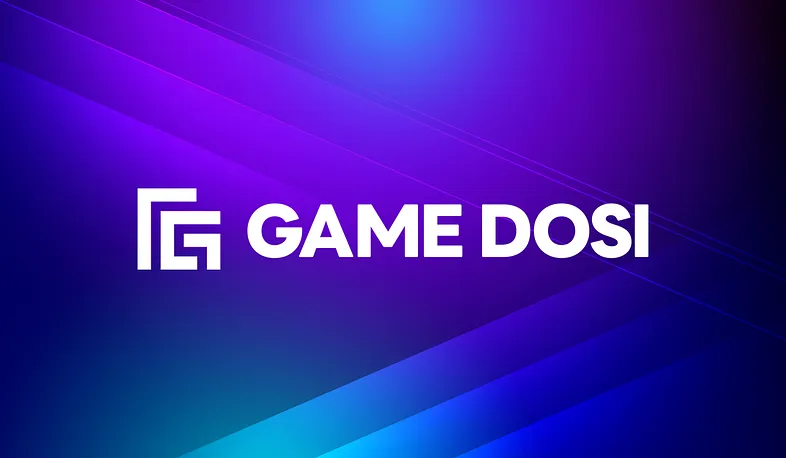You "don't need" DAO: What is the necessity of DAO?
This article can fully prove that DAOSquare is not a one-sided Amway DAO! We hope that more different voices will appear in front of everyone, which is a positive factor in promoting DAO in itself. An important point the author wishes to remind everyone is, what is the necessity of DAO for you? This is also a prerequisite for you to start DAO.
—— Typto 
Original title: You non't need DAO Author: Grace Rachmany Translator: Shirley
It's time to create a DAO!
- Industrial Blockchain Weekly Report | The first batch of virtual banks has been internally tested, and the ICT Institute launches a blockchain-based resumption platform
- Under the epidemic, how can blockchain make public welfare easier?
- Dialogue | Community epidemic prevention on the chain, data security can be checked
Anyone can create their own DAO via Aragon or DAOstack, or simply by forking Moloch. Even better, thanks to the excellent work of the Commons Stack buddies, you can use the Augmented Bonding Curve (ABC) to raise money for the DAO and you're done! In just a few days of work, you have a fully functional DAO!
The question is, why did you create a DAO?
DAO's overcommitment
If you have been to a DOfest event, or watched some articles and videos related to DAO, you will feel that DAO can solve all problems, such as:
- DAO will give everyone the right to speak!
- When many people find that they have a voice, they will join DAO!
- You can weigh decisions based on reputation!
- Funding through DAO is easier / incredibly simple!
- Joining DAO is easy!
- The DAO organization is likely to exist beyond the founder!
- DAO is a better choice for collaboration!
- DAO can make better decisions!
- DAO is good for the environment!
- New business models are suddenly possible!
If all this sounds too perfect to make them feel impossible, it's because it's so perfect that it's hard to become a reality. Obviously, I now spend a lot of time thinking about DAO, writing articles about DAO, and contributing to it. I believe DAO will provide some solutions to many of the above problems … but not yet. The problem is … marketing is not keeping up.
Another word for "marketing" is "false information." Marketing of DAO technology is done by DAO Technology companies, which have a limited scope of business. They need to find a business model in some way, or they need to gain enough traction in today's business to survive, to raise money in the market. This is problematic because it means that these companies and individuals intentionally mislead others. This is especially a problem for me because many people are misled and call me for advice. Maybe this is not a bad thing for me, because I like to comment on others, so it seems smart! Anyway, let's get to the topic.
Why do you need DAO?
Before we talk about the other side of DAO and why you don't need DAO, let's briefly discuss why DAO technology is so hyped (and why I spend most of my time in the dGov / DAO field).
Personally, I don't think DAO is a new "doing business" model. The current business model works well. Hierarchy has proven to be an effective way to make money. In other words, in terms of business, there is nothing to solve. It's true that fundraising can be difficult, but it's not easy for entrepreneurs, and doing anything worthwhile is not easy, just don't complain.
In cases where the hierarchy cannot solve the problem, a form of distributed / decentralized governance, including DAO, makes sense. DAO may become a form of organization that can help humanity solve collective problems such as water quality, military conflicts, economic inequality and resource sharing. We don't want to continue committing suicide or killing each other directly or indirectly. Arguments may be interesting, but solving problems and conflicts is more effective and meaningful.
Hierarchy (hierarchy) and the principle of majority do not solve the problems of coordination, fairness, and collaboration. We have sufficient empirical evidence that new forms of collaboration are urgently needed. DAO offers hope for collective wisdom. But now, this is just hope. If you want to try to confirm, then you may need to try DAO.
But … you need to be aware of these (current) limitations.
Oligopoly does not require DAO
If your team has no more than 20 people and you need to make decisions together, find a room to discuss and make decisions. If you need a moderator or team collaboration expert, find one. Learn how to use weighted decision tables, learn some advanced communication skills, don't use DAO.
Several people have found me and told me that they have a team of 5-7 people and they now want to use DAO for collaborative decision making. This is stupid! Why not find a room to discuss and make a decision? The use of digital decision tools (DAO) weakens the relationship between the seven members of the team and creates a competitive environment in which each other's ideas are compared with each other, rather than listening to each other. Almost all digital tools we use today, no doubt this is the case (Loomio is an exception, but small groups do not need it)
If you want an oligarch group of 5-7 people, form one. Don't use complex online voting platforms, it will lengthen your decision making process. Ask for help if you have a relationship problem (read my book or contact me directly, or contact my "competitors" (such as Enspiral)
DAO will not solve your financial problems
In developing communities where people can reduce or eliminate scarcity by sharing resources, the work of the sharing economy and cooperatives has great potential.
However, today's DAO does not do this. DAO technology enables people to vote on financial budgets (in ETH) and allocate funds. It does not make funds appear in the account. So far, DAO has not allowed these funds to be shared, only pooling them and then allocating funds based on voting. But who wants to do this? If I have money, I want to decide for myself where to go, instead of giving the money to the voting pool.
Today, DAO technology does not allow any other resources to be shared (such as time banks). It does not allow "big cake" or redefine what money is, it is just a pooling and distribution technology. If the enhanced binding curve is omitted, the discussion of funding will be incomplete. I don't understand the enhanced binding curve, I tried to understand it, but it was too complicated for me. What I understand is (you can correct me at any time if you don't understand it well), the binding curve is based on some form of financial speculation to increase the price of tokens in the token pool. As far as I know, through some techniques, tokens initially have a certain value, maybe because someone deposits some other form of money into the pool, and then people keep joining and increasing the value of the token pool. I have three questions about this concept.
My math education background is more than 98% of the population, and I don't understand this yet, which means that 98% of people can't use it.
1-It is based on currency speculation. In my limited brain capacity, I think currency speculation is the opposite of real value. Mutual credit money and time banking are based on some kind of "real value". Even though people call it investment, investment is still a guess that people think something will be more valuable in the future. I don't want humanity's future economy to be based on speculation, arbitrage, and mathematics that most people cannot understand.
2-It does not solve the basic economic problems of non-profit and public welfare. For example, if you are creating a DAO organization that beautifies a city, this makes sense. Assuming there are many artists and horticulturalists joining, companies still won't pay for it, and donors might pay for it. You may end up with a beautiful city, but there is not much money speculation for the funds in the DAO, and the DAO will still spend more than it gets. Money doesn't come from a strong wind, because you have a speculation, uh, I mean an investment mechanism.
3-I want to believe that creating a DAO can solve the funding problem, but I have no evidence. I do have evidence to the contrary. In several DAO projects, they assume that if they do it in a DAO way, their failed business model will not fail. But this did not happen.
Voting is not collaboration
As mentioned above, one of the promises of distributed / decentralized governance is that it will help people make good (or at least rational) decisions about common goods. Even if we are only talking about blockchain, the idea of DAO is to "adjust the incentive measures". In some cases, at least in terms of economic benefits, these seem to be happening. However, giving only yes / no votes to a proposal is an incomplete form of governance.
In fact, voting and collaboration are almost the reverse. When someone says "Let's vote," it's tantamount to "Let's stop communication and give up all solutions except the current idea." Voting when collaboration is not possible is no problem. However, if every communication starts with "have an idea like this, let's vote on it", it not only solves the problem inefficiently, but also hinders true communication and collaboration. This is definitely not a solution to disagreement issues or problems that will inevitably have "losers" in transactions.
Complex reputation system
Many DAOs use "reputation" to weigh those who are more interested or more reputable in DAO to vote. This single-dimension measurement of reputation is more superficial and random. Even within a fairly limited range of decisions, reputation is not the same thing. Some are financial experts, and some are blockchain experts. Some people may be better at making proposals, but not better at implementing them.
Current reputation allocation systems are based on initial terms determined by the creators of the DAO, and the reputation gained by performing tasks in the DAO. The results were only half effective. Most have long-term implications for a system that has gained enough reputation for its early adopters, simply because they are early adopters. For DAOfest, this will also prevent people with good reputation and good marketing skills from establishing a mutually beneficial voting platform, which may not reflect the overall needs of DAO.
If managers have never used Beta
In August 2018, I experienced my first use of alpha technology outside of a research lab. It's expensive and complicated. If you are creating an organization for normal people who are not technically savvy or willing to solve many small technical problems, then don't try them, these are not suitable for ordinary computer users.
Do you want to lose control?
The idea of a distributed / decentralized organization is that it will create a form of participatory management without a "boss". Most founders are not really willing to give up control, at least when it comes to budget allocation, hiring and firing. I haven't seen any organization in the DAO space that really does group decisions when it comes to money and hiring. I've seen a lot of organizations, and when the founders faced giving up control and handing it over to a larger team, it quickly became clear that this was not a good idea.
When you feel that people who join the DAO should have full control over them, and you feel that you have equal control over these people, then DAO is a good choice. If you want to continue to lead this organization, but call it DAO, it may be good marketing, but it is not distributed governance. Most people don't want to give up control, which is understandable; but if so, DAO is not the way to go.
Great multi-signature!
Now that you know what DAO will not do, what will it do?
At present, the most successful organizations are those that use DAO to make some simple decisions (such as whether the tokens will be listed on the exchange? Should insurance claims be approved? Do we need to change parameters? Do we need to fund activities?) Another good use case is dOrg where DAOstack is used as a complex multi-signature wallet. The company's employees' salaries do not need to be approved by the CFO who needs to sign a check. Instead, they are voted by employees and paid automatically. This is pretty cool. So if you are looking for this type of functionality, DAO can provide more advantages than other multi-signature wallet technologies.
Such as industry alliances. Many organizations may come together to advance certain public interests. For example, the Ethereum Foundation created Marketing DAO. Any Ethereum-based project can invest in this DAO because everyone wants the Ethereum ecosystem to be used by more people. As contributors, members of the alliance can allocate funds from their funding pool based on votes on the most valuable projects. The idea is good. We have seen people use Moloch's fork, Aragon, and DAOstack to achieve this functionality.
Landing application still takes a year or two
Many people are building various governance models. Passion for research on DAO, direct democracy, collective intelligence, and better tools for collaboration is on the rise. I very much hope that within a year or two, driven by this enthusiasm, I will see some compelling experiments and useful tools appear. If you really want to create a distributed organization or DAO, just explore and learn, now is the best time. But to land, you have to wait another year or two.
Original address: https://hackernoon.com/you-dont-need-a-dao-un3937tu
We will continue to update Blocking; if you have any questions or suggestions, please contact us!
Was this article helpful?
93 out of 132 found this helpful
Related articles
- What is a block of credit? Speaking from Lightning Loan
- Talking about DAO Governance: "Man Rule" + "Autonomy" —— Evolving Way of DAO Governance
- Review of the DApp ecosystem in 2019-the market trend is highlighted, relying on phenomenal games to survive?
- A road to smart hospitals: regulatory audits made easy
- "Steemit lightning seizure of power" has triggered a big discussion on public chain governance. Where does the individual "voting right" go?
- EY and ConsenSys announce the launch of the baseline protocol to ensure the safe and efficient use of the Ethereum mainnet by enterprises
- Research | Interpreting the Prediction Market: Why is "stacking" important?






